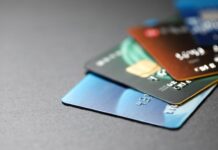
Credit cards are great for earning rewards, protecting your purchases and building your credit. That said, you may want to opt for debit or cash if using credit can cost you in interest or fees. Listed here are three times you shouldn’t use a credit card.
1. A?purchase will max out the card
Maxing out your credit card, or charging all the way as much as your limit, can harm your credit rating while also potentially costing you in interest and fees. If your purchase will cause you to reach or exceed your card’s limit, don’t swipe.
Here’s why: One of the most key elements in your credit score is credit utilization, or even the quantity of debt you have in relation to your borrowing limit. Ideally, this number should never exceed 30%. Maxing out your card means a 100% utilization rate, that will likely mean a substantial hit to your credit.
On top of that, groing through your limit will probably trigger an over-the-limit fee. And if you do not remove the balance by the due date, you’ll also incur interest in your average daily balance. This all adds up to a large hit to your finances – both in monetary losses and damaged credit.
2. There is a fee for paying with credit
Using your charge card for several transactions – like qualifying education or government payments – often results in a convenience fee. Convenience fees tend to vary from?2% to 4%; they cover the interchange fees that merchants usually have to pay for to process charge card transactions.
You could also incur surcharges on certain purchases if you choose to pay with plastic. For example, convenient store may ask you for a little fee for implementing credit should you don’t spend?a certain minimum amount. This is a surcharge, and it is legal in most states, so long as it’s properly disclosed.
3. You don’t have the cash?to pay for it off through the due date
If you use your credit card responsibly, you can get a free short-term loan while also potentially earning rewards. However, if you carry a balance from one month to another, the eye will exceed the rewards you’ll earn.
Let’s perform the math: Interest accrues in your average daily credit card balance. In case your average balance is $2,000 as well as your APR is 20%, you’ll owe $33 in monthly interest, or around $400 annually.
To avoid interest, only charge what you could pay in full every month. As well as for those months where everything goes completely wrong – your earnings drops, your dog comes with an unscheduled vet visit and your car starts smoking – have an emergency fund you are able to draw from to avoid going into debt.














